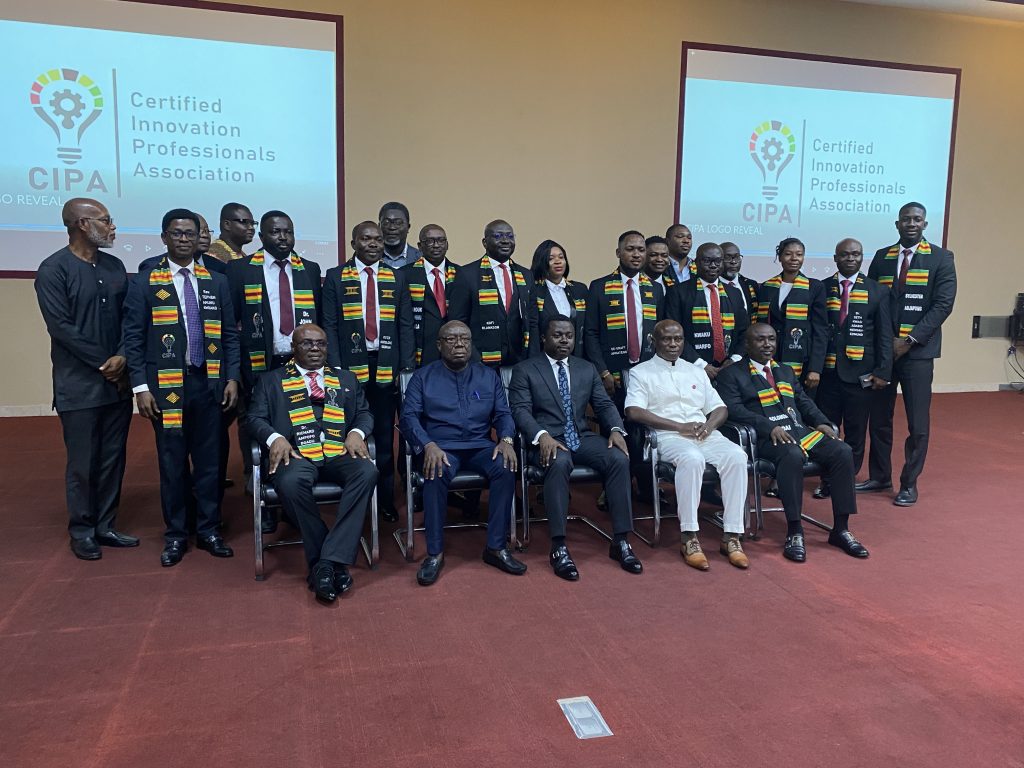By Patience Gbeze/Edward Dankwah
Accra, Aug. 10, GNA – Dr Kwaku Afriyie, Minister for Environment, Science, Technology, and Innovation (MESTI), has called on the first cohort of the Certified Innovation Professionals (CIP) Programme to help build society with integrity.
He said integrity was immutable and that scientific thoughts and theories changes, hence, the need to promote integrity in the Ghanaians echoes, to ensure that innovation and development would take place.
“Any society without people who appreciate integrity is doomed to fail,” he added.
Dr Afriyie made the call during the graduation ceremony of the first cohort of the Certificate Innovation Professional organised by the Nobel International Business School (NIBS) in Accra.
The Minister said the world was marked by its rapid pace, intricate interplay of opportunities and risks, which demanded innovative leadership.
However, he noted that it was crucial to remember that leadership extended beyond boardrooms, and that true leaders exhibit empathy, integrity, and a sense of responsibility towards the greater good.
He indicated that innovation was not solely about groundbreaking inventions or revolutionary technologies, but about fostering a culture of continuous improvement, encouraging collaboration, and nurturing creativity.
He said: “As you create and implement new ideas, always keep in mind the broader impact on communities, the environment, and the well-being of individuals and consistently innovate with purpose and a deep sense of social responsibility.”

Dr Afriyie, therefore, encouraged the graduates to approach their roles with a renewed sense of purpose and a commitment to making a meaningful impact.
“As you assume leadership roles in your organisations, remember that your innovative mindset has the potential to inspire and empower others to drive positive change,” the Minister stressed.
Mr John Ntim Fordjour, Deputy Minister of Education, indicated that in emerging markets, particularly the third world countries, only 25 per cent of organisations and companies had the required innovation practitioners, hence the need to step up the number.
He said innovation was essential to Africa, particularly in Ghana, such that in a fast-changing world the nation would catch up with other advanced countries.
He added that, “We have many complex problems and challenges to deal with and we cannot solve them without innovation.”
Mr Fordjour said the introduction of the Science, Technology, Engineering and Mathematics (STEM) were innovated into the education system to train people the 21st Century way.
“We are in the 4th industrial revolution and therefore we cannot continue to train like we did some thirty years ago,” he added.
The Minister urged the graduates to embrace failure as a steppingstone to success, remain curious, and never stop seeking new ways to make a positive impact.
He commended NIBS for leading the change and instituting the CIP programme to train people to become practitioners for the betterment of the country.
Mr Ebo Richardson, Practice Director for the CIP Programme, said innovation was a way of thinking and looking at things in a distinct perspective, determining that outcomes would be better if applied by different approaches.
“There are three things that will carry you, knowledge and tools, to be able to do things because of the experiences you’ve had and the programme, the second is network, where sometimes you need support to get things done and finally courage, because of resistance and parochial interests whenever you want to bring about change,” he said.
GNA